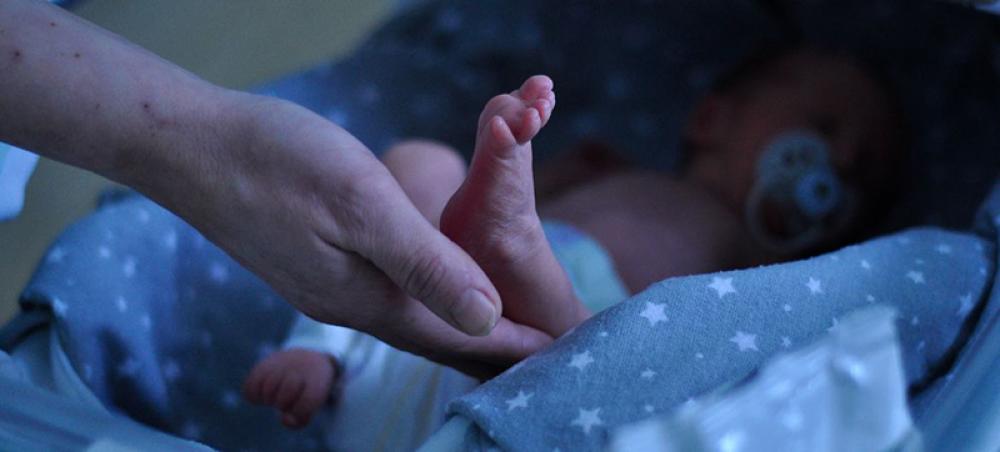Just Earth News | @justearthnews | 10 Aug 2022, 12:10 am Print
 Ukraine
Ukraine Image:UNICEF/Andriy Boiko
New York: The war in Ukraine is increasing the risks of premature births and causing babies to need more oxygen, the spokesperson for a UN-backed global health initiative told the World Health Organization (WHO) on Tuesday in Geneva.
“The war increases levels of stress in pregnant women, which leads to an increase in the number of premature births reported,” Herve Verhoosel, Spokesperson for global health agency Unitaid, told journalists at a regular WHO press briefing.
“Babies born prematurely are more likely to develop respiratory, neurological or digestive complications, conditions that often require oxygen for treatment”.
Delivering oxygen
Along with partner, Vayu Global Health, Unitaid has provided 220 ultra-low cost, portable, electricity-free devices (bCPAP) and 125 oxygen blender systems.
The bCPAP device is a non-invasive way of ventilating newborns who are struggling to breathe. It allows for precise delivery of oxygen concentration, flow, and pressure, which can dramatically improve the chances of survival of newborns and infants.
Along with oxygen blender systems they prevent eye, lung and brain damages associated with giving babies pure oxygen provision.
“Together they supply infants with the breathing support and oxygen therapy they need,” Mr. Verhoosel explained.
The device was granted FDA emergency use authorization to help in the fight against COVID-19.
While the devices can be used globally, they are particularly well suited for humanitarian crises or low-resource settings.
Life-saving electricity-free devices
Unitaid funding enabled FDA approval of the Vayu bCPAP system, its engineering and manufacturing in Kenya as well as specific support for Ukraine.
According to Mr. Verhoosel, to date 25 referral facilities across Ukraine have received the life-saving devices, 17 of which are perinatal centres.
The global health agency also organized initial in-person intensive training in Krakow, Poland, to support Ukrainian neonatologists and pediatricians who came from Lviv and provided 40 Vayu bCPAP systems for training and support in seven other hospitals throughout that region.
Building on the work in pediatric oxygen delivery that Vayu Global Health has carried out since September 2020, access has been widened in poor-resource settings.
The system is also used in several African countries as well as Belgium and the United States.
UNITAID/Vayu Global Health
Funding needed
The ongoing work complements Unitaid’s initial $43 million investment to enhance access to pulse oximetry in primary care centres across nine low and middle-income countries.
The devices are a vital diagnostic tool in helping identify children in need of lifesaving care, including oxygen therapy.
However, Mr.Verhoosel informed the press that more funding is needed to scale up its manufacturing to the largest degree. 
WHO epidemiologist Margaret Harris backed Unitaid’s call for more investments in these critical health innovations.
“Every time there is an attack, one of the things that happens is the electricity doesn't work,” she said.
The WHO official described a recent visit to a pediatric hospital very close to the active fighting line in Zaporizhzhia.
“Every night they sleep in the basement. And the kids that they've got on ventilation, they have to try to move them. So having very portable devices that can function offline is absolutely critical”.
- New hybrid Mpox strain surfaces in UK and India — WHO sounds global alert
- Deadly weight: Obesity now responsible for 1 in 10 infection deaths worldwide
- Coffee and tea: This everyday drink may help protect your brain from dementia
- Happy Chocolate Day! The sweet secret behind chocolate’s hidden benefits
- Cambridge study finds menopause affects memory, mood, and sleep





-1763561110.jpg)
